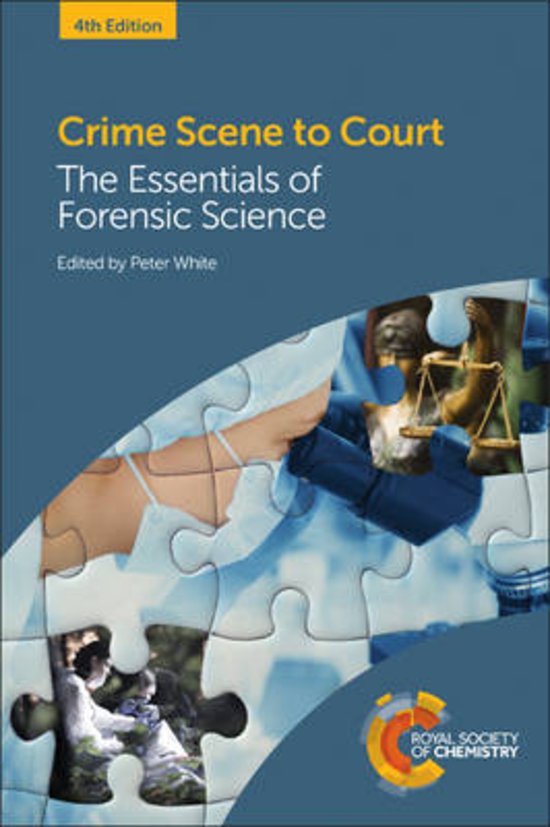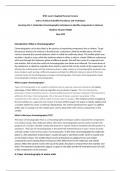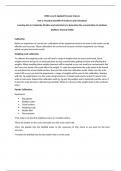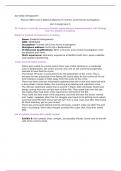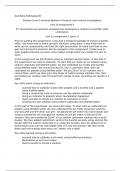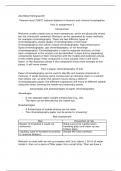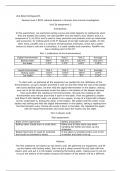Pearson BTEC • Forensic and Criminal Investigation
Latest uploads for Forensic and Criminal Investigation at Pearson BTEC. Looking for Forensic and Criminal Investigation notes at Pearson BTEC? We have lots of notes, study guides and revision notes available for Forensic and Criminal Investigation at Pearson BTEC.
-
260
- 0
-
49
Modules Forensic and Criminal Investigation at Pearson BTEC
Notes available for the following courses of Forensic and Criminal Investigation at Pearson BTEC
- Unit 1 - Principles and Applications of Science
- Unit 2 - Practical Scientific Procedures and Techniques
- Unit 3 - Science Investigation Skills
- Unit 4 - Forensic Investigation Procedures in Practice
- Unit 5 - Applications of Criminology
- Unit 6 - Criminal Investigation Procedures in Practice
- Unit 7 - Applications of Criminal and Forensic Psychology
- Unit 8 - Physiology of Human Body Systems
- Unit 9 - Environmental Forensics
- Unit 10 - Forensic Fire Investigation
- Unit 11 - Forensic Traffic Collision Investigation
- Unit 12 - Forensic Photography
- Unit 13 - Forensic Genetics
- Unit 14 - Forensic Anthropology and Archaeology
- Unit 15 - Practical Chemical Analysis
- Unit 16 - Microbiology and Microbiological Techniques
Popular books Pearson BTEC • Forensic and Criminal Investigation
Latest notes & summaries Pearson BTEC • Forensic and Criminal Investigation
Practical scientific procedures and techniques, learning aim C, Distinction grade level.
Practical scientific procedures and techniques, learning aim B, Distinction grade level,
A destination grade assignment, for Practical scientific procedures and techniques, learning aim A.
Laboratory techniques and their application, learning aim C, Distinction grade level,
Laboratory techniques and their application, learning aim B, Distinction grade level, complete with graphs, tables and calculations included.
Laboratory techniques and their application, learning aim A, Distinction grade level.
This is an in depth assignment that is a correctly structured forensic expert witness statement/report, with findings from the analysis of evidence, with an interpretation of the findings from the analysis of evidence, and showing clear scientific reasoning to draw valid conclusions.
This is an in depth assignment discussing the key personal competencies developed in relation to scientific skills undertaken, and analysing skills developed and suggest improvements to own practice.
This is an in depth assignment discussing how to correctly use chromatographic techniques to produce chromatograms, the use of chromatographic techniques to separate mixtures, and analyse own chromatograms and relate the factors that affect the separation of mixtures to the quality of results obtained.
This is an in depth assignment discussing how to correctly obtain data using different equipment to construct cooling curves, determine the rate of cooling of substances using cooling curves, and analysing the rate of cooling of substances from your data using cooling curves to draw valid conclusions.

